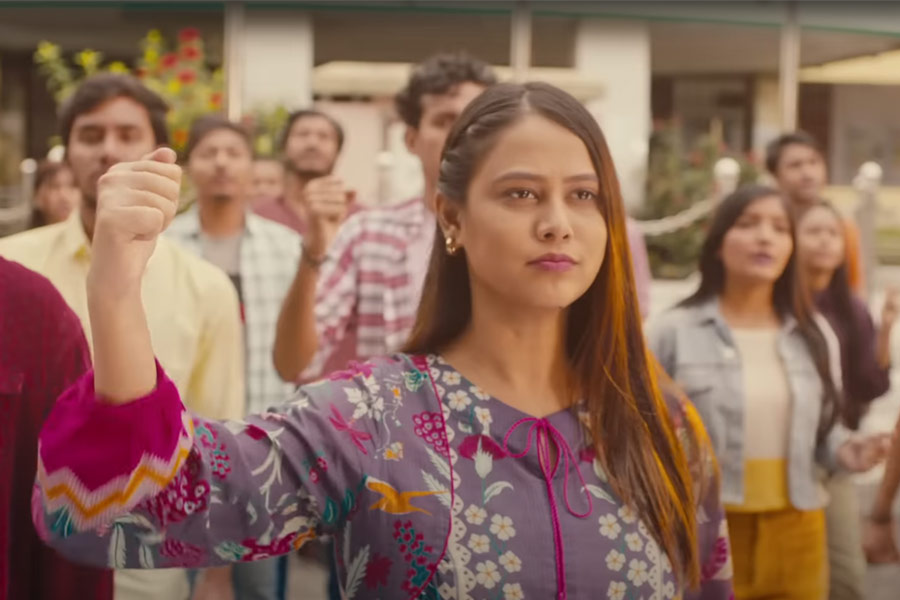Coke Studio Bangla presented Kazi Nazrul Islam’s Karar Oi Louho Kopat, sung by young students from educational institutions, to commemorate the 52nd Victory Day of Bangladesh on December 16.
“Karar Oi Louho Kopat is a more than half-a-century old song, but still relevant enough to bring out the indomitable energy that is Bangladeshi Youth.‘Ore O Torun Ishan, Baja Tor Proloy Bisan’ is a line that echoes the spirit of freedom in our hearts of generations. Penned down by our National Poet Kazi Nazrul Islam, the ageless words capture the #RealMagic of a true Bangladeshi spirit that makes us stand tall- every time adversity tries to bring us down,” the description on the video said.
Coke Studio Bangla’s decision to recreate this iconic ode to youth, written and composed by the national poet of Bangladesh, is significant in light of a recent controversy surrounding A.R. Rahman’s remixed version of the song in the Hindi film Pippa starring Ishaan Khatter and Mrunal Thakur.
The remixed version, produced and composed by Rahman himself, features performances by a number of West Bengal musicians like Rahul Dutta, Tirtha Bhattacharjee, Pijush Das, Shrayee Paul, Shalini Mukherjee and Dilasa Chowdhury.
However, Rahman’s interpretation did not sit well with a significant portion of the audience. Social media platforms became the battleground for a diverse range of reactions, with many labelling the remastered version as an unwarranted departure from the essence of the song that inspired a long line of Bengali revolutionaries during both India and Bangladesh's freedom struggles.











